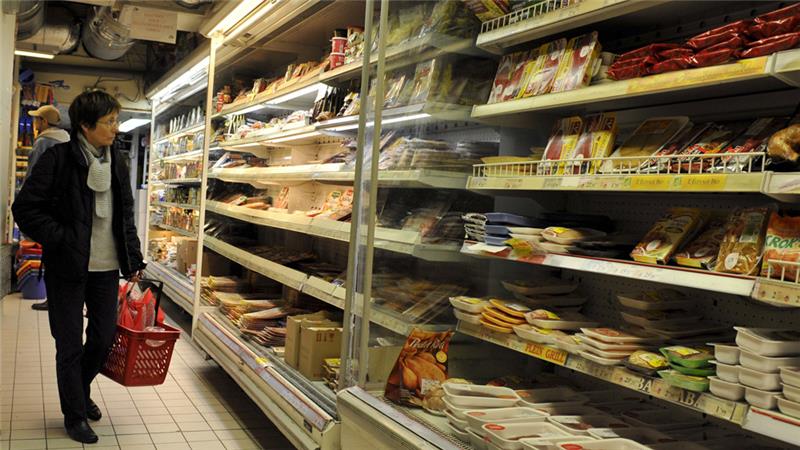Stores will be forced to donate unsold but still edible food to charity or for use as animal feed or farming compost.

France’s parliament has voted unanimously to ban food waste in big supermarkets, notably by outlawing the destruction of unsold food products.
Under the legislation passed on Thursday, as part of a broader law on energy and the environment, supermarkets will be forced to donate any unsold but still edible food goods to charity or for use as animal feed or farming compost.
All large-sized supermarkets will have to sign contracts with a charity group to facilitate food donations.
“It’s scandalous to see bleach being poured into supermarket dustbins along with edible foods,” Socialist member of parliament Guillaume Garot, who sponsored the bill, said.
At present, some grocery stores are pouring bleach in bins after throwing away food to make it unfit for consumption.
French people throw away between 20 to 30 kilos of food per person per year costing an estimated $13m to $22m annually, according to the AFP news agency.
The government is hoping to slice food waste in half by 2025.
Last month, MPs presented 39 suggestions to the French government to end food waste, among them, that French people take up “le doggy bag”, to cut food waste in restaurants.
The head of the French federation for commerce and distribution, Jacques Creyssel, said it was a mistake for the new law to only target big supermarkets, which he said represent only five percent of total food waste.
Up to one third of all food globally is spoiled or squandered before it is consumed by people, according to the UN.
The waste of about 1.3 billion tons of food each year is causing economic losses of $750bn and significant damage to the environment, a 2013 report stated.





